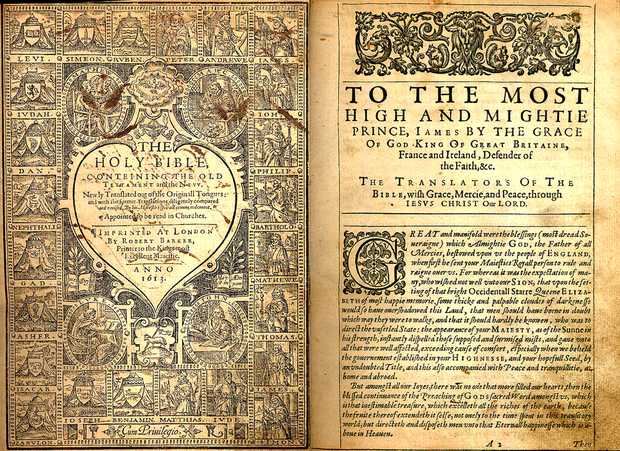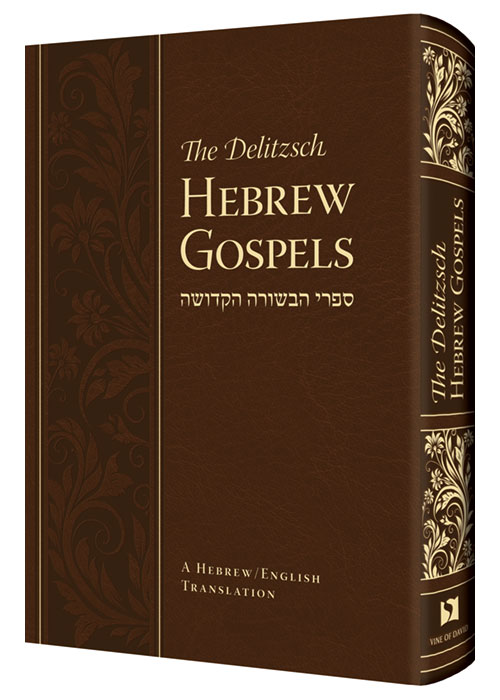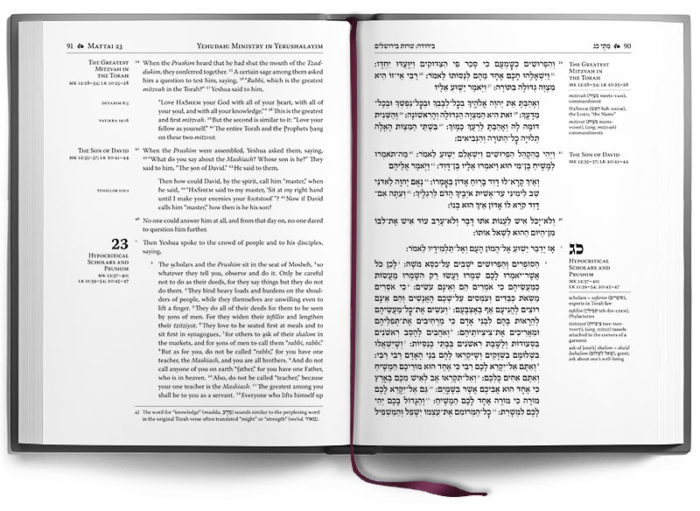For years my wife thought I was implying that if you can’t read Scripture in the original languages you were incapable of truly understanding the word of God. Well, that’s not exactly what I said, but it’s close to what I thought. Although knowledge of original languages is important, it is not as important as understanding the context of what was said or written. What did the author mean, and what would the original hearer or reader have understood. This simple idea of “original intent” has, for the most part, been lost in key texts in all major English translations of the New Testament; and in a few instances in the Old Testament translations based on the Septuagint. Before you get too bent out of shape, please let me attempt to explain.
I believe to get the most out of your Bible you have to understand, at the very least, the following three truths:
First, there is no such thing as an accurate translation, or close to perfect translation; all translations have their strengths and weaknesses. All translations are part commentary, part supposition. All translations have altered, in some form or fashion, original intent. We have no original manuscripts, or autographs as they are known. Our earliest manuscripts of the New Testament are from the second century and in Greek. Modern scholars have falsely assumed that the entire New Testament was written in Greek. Some second century church fathers believed the gospel of Matthew was written in Hebrew, and it would make no sense to believe that the book of Hebrews, written by a Jew for Jews would be written in a language that few Jews in Israel could read.
Second, all translators bring to the task their own prejudices and ecclesiastical world views. In the case of the King James translators, they were burdened with 15 general rules given by James intended to guarantee that the new version would conform to the ecclesiology and episcopal structure of the Church of England. Case in point, the use of the word baptize. If the KJV translators had translated the Greek word “baptizo” as immersion, as it should have been, they would have upset the clergy. The Anglican church to this day does not immerse converts but instead sprinkles converts and infants, contrary to the original way the first church did baptisms. To avoid conflict and displeasing the king, the translators anglicized the Greek word “baptizo,” creating a new word, “baptize,” that could mean whatever the clergy said it meant.
While I’m on the KJV, a few more points. First, I love it and still use it, but not as my primary Bible. And I personally don’t

like the NKJV. Second, for those that are KJV only, I want to remind you of a few things. The KJV was not the Bible of the Protestant reformation, it was written for the Church of England, known today as Anglicans or Episcopalians. The Bible of the reformation and the one used in America by the Pilgrims and many of the founding fathers was the Geneva Bible. The notes from the Geneva translators were considered so important that they were included in many KJV publishings. Also as to the KJV being the only authorized version, you have to remember who authorized it, The only version authorized by King James was the original 1611 version. So, if you’re not reading the original 1611, you’re reading a revised edition, and few people on the planet can read the 1611, as it was written in archaic English and before the letter “J” was introduced into our language.
Third, and this gets back to context, Jesus, the apostles, and almost every author of the Bible was Jewish. The Bible was written by Jews for Jews and those gentiles who, as Paul describes in Ephesians, are grafted in to “the commonwealth of Israel.” Without understanding the Hebrew mindset, idioms, grammar and syntax you are at a complete disadvantage and are likely to become a contributor to bad doctrine based on incorrect translation or understanding of words and phases. It is because so few translators have understood Hebrew idioms that we are left with the theological arguments that plague Christianity today. We are so far removed from “original intent” that the first century believer would not recognize today’s church. When most Bible teachers warn not to take a verse of Scripture out of context, they’re referring to placing the verse in the context to the surrounding Scripture, while good, this is not necessarily going to give you “original intent.”

A good example of this is the message about the Kingdom of God or Kingdom of Heaven as it is referred to 32 times in the gospel of Matthew. It is the gospel message as preached by John the Baptist, Jesus and the original apostles including Paul. It is the essential message of the New Testament. All told the Kingdom of God (Heaven) is mentioned 68 times in 10 books of the New Testament, but most evangelical scholars come to the wrong conclusions as to what is the difference between the Kingdom of Heaven and the Kingdom of God. It is a debate that has raged for centuries, but one that is easily answered once you understand context of original intent.
So, what is the difference between Kingdom of Heaven and Kingdom of God? Nothing, absolutely nothing, they are one and the same. To a first century Jew, the word heaven as used in the Kingdom of Heaven was a circumlocution, an indirect way of saying God’s name without actually saying God’s name. The Jew’s believed this was more reverent and only the high priest just once per year in the Holy of Holies, was allowed to speak the actual name of God. Since the gospel of Matthew was originally written for Jews and in Hebrew, not Greek, it would have used “Heaven” as an understood idiom of God’s name. Circumlocution is used throughout Jewish literature to avoid directly speaking or writing God’s name and these other names for God have worked their way into our English translations. This incorrect oral tradition of the Jews and carried over into English by translators has caused great harm. We have all been robbed of the power in His name. If anyone questions whether Matthew was written in Hebrew, then they miss the obvious from both history and the use of idioms and syntax used in the gospel of Matthew that have carried over into the Greek and English.

So when Todd and I are asked, what is the best translation? The answer is always, which one do you enjoy reading? Because a translation is just a translation. None are accurate enough to stand on their own. They all need to be supplemented and most were with translators notes to readers and margin notes to bring clarity to decisions made by translators, but this is not enough. In addition you need a lexicon (allows one to study original language without having to know the language) and commentaries that are rooted in Rabbinical Judaism so as to know “original intent.”
Our Christian roots are in the Hebrew God and Messiah of the Bible. Jesus did not come to start a new religion called Christianity, he came to fulfill the law and the prophets. We in this generation are not alone in misunderstanding “original intent,” Jesus was constantly admonishing the religious leaders of his day with phrases like, “have you not heard, or is it not written.” The Jews of Jesus day put as much value on their oral traditions past down since the days of Moses, as they did Scripture, but Jesus was telling them what the Father actually said or meant. Let us all get back to “original intent.”
Thanks for reading,
Rick


I am once again in agreement with you on the vast majority of what you stated here. I had a life altering experience a little while back, which I will be happy to share another time, but the gist of it is I received the Holy Spirit. Part of this experience was a sudden understanding of many truths and scriptures that I had no previous basis or knowledge of. I lack the vocabulary to explain it in the fullness of the experience, but one of the over riding “messages” I suddenly “knew” was a strange propensity to seek and find the truth in things. This led me on many avenues as you can imagine, but the cornerstone if you will, was the compelling desire to leave behind all my previous knowledge, or perceived knowledge, of scripture. To do a deep dive into the origins of the bible and the original apostles teachings and by default, an examination of the Old Testament Jewish beliefs. Much of what I found is as you have already stated. I was floored to discover that much of our western Christianity is simply not based in scripture, or is based on an incorrect understanding of the languages and intended meanings of words. I will leave the particulars of the various translators errors to one with a better grasp of ancient languages. But some fundamental precepts and doctrines we accept are at odds with the actual intents of the authors. I don’t “recommend” any specific versions of the bible as “better” or worse. But once you know some of the errors made, the scriptures begin to make more sense and have far fewer confusing and seemingly contradictory passages. One of the most egregious of these to my mind is the word “christos” which was left basically untranslated. As a result, Christ has become more of a last name for Jesus, rather than a proper title. As you aptly described, the act of translation from one language to another is not a simple word replacement exercise. Many of the Hebrew, Aramaic and Greek words, hold a multi-faceted meaning. Translators are tasked to find a word that best replicates that word. But English is not structured or even understood in the same manner as the older languages. Our idea of the “afterlife” is a combination of Plato’s philosophy, Roman Catholic theology and incorrect translations. I actually read the original 1611 King James without issue. For some reason, I just automatically seemed to understand the archaic lettering and etc. But one of the foundations for western “heaven” is in the translation of “many mansions in my fathers kingdom”. Where the original wording that a jew of that era would read it as representing a roadside resting place or dwelling where you would rest on your travels, we now read it as a majestic voluminous mansion. Very different descriptions! Or seraph being translated as snake in one passage, winged fire serpent in another and not translated in others. I personally now have the Geneva Bible, which is what our American forefathers brought over, the 1611, The holy Scriptures, NAS, NIV, NLT, Septuagint, The Greek and the Hebrew Interlinear, Diaglot and Polyglot? as well as a Lexicon and several other less popularized bibles. I also availed myself of the complete writings of the first, well mostly second thru 5th century Ancient Christian writings and through the first council of Nicea. As well as a large selection of ancient jewish writings. I have further writings of those up till the 12 to 15 hundreds, but once the church began it’s split, the theology goes into many separate directions. Even with all this and more research than I can read, I am nowhere near an expert, and doubt I will ever feel I have a complete understanding. I do have a vastly new and much more reliable understanding of scripture though. Reading just the writings of the Early church founders from the first few hundred years, when they were all in agreement. will explain alot that we misunderstand today! Thanks for having the courage to broach this topic, as many are too intimidated and fear public opinion or reprisal.
Dear Raymond. Thanks for connecting. Sorry for the delay in responding but I fractured my right shoulder and it has slowed me down. I like and appreciate your insights and would like to know more about you. I look forward to hearing from you. Blessings